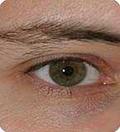|
Blurred Vision Information
Blurred Vision is one of the first signs If you have any kind of Vision Disorder. Sometimes both eyes can cause this but more often it is the result of one eye that has difficulty focusing. Blurry Vision is often a symptom rather than a condition, and as such the best route if you want to Protect Your Eyesight is to see a Eye Care Professional or Eye Care Specialist immediately. Both ocular and neurological disorders can cause blurred vision, so although many of the Vision Problems that cause it are mild, it might also be a sign that something is wrong with your central nervous system. Blurry Vision is a normal thing that happens with aging as well. As we grow, our cells are constantly regenerating, and as we get older this process becomes less efficient, breaking down and causing most of the problems associated with aging.
Wrinkled skin, loss of flexibility, and increased Myopia also known as nearsightedness or short sightedness or Hyperopia also known as "farsightedness" or "long sightedness" are commonly associated with aging, and unfortunately there is nothing you can do to stop it from happening, although there are ways to slow down the process. Other than aging, Blurry Vision is also a common symptom of Glaucoma, eye injury, trauma, inflammation, retinal detachment, malignancy, and infection, to name a few. If you have a sudden onset of blurry vision, you should see a professional immediately, as it can be a warning sign of an impending stroke.

Subscribe to EyeSight Vision Care! , our monthly newsletter with in depth information to help you keep up to date on how to Protect Your Eyesight with a free bonus. Fill out the form below. You'll then receive an email asking you to confirm that you subscribed. You'll always have the option to unsubscribe at the click of your mouse. Blurred Vision to more Vision Information
|
More Information





















